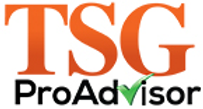“Taxes are the price we pay for a civilized society.” This iconic quote, often attributed to economist Adam Smith, perfectly sums up the essential role taxes play in our daily lives. If just one sentence can capture such deep wisdom, imagine the immense knowledge found in a well-written tax textbook.
From navigating the fine points of personal income taxes to unraveling the complex world of corporate taxation, these resources don’t just inform—they equip you with practical tools, offer essential insights, and broaden your understanding of the financial landscape. But with so many options out there, how do you choose the right tax book and resources to meet your specific needs?
The First Step is to Know Yourself
Before diving into any task, one must prioritize their own circumstances and desires. We need to first consider how you prefer to learn and what kind of goals you want to achieve through this learning.
1) Learning Style: Discover Your Unique Approach to Tax Education
Everyone learns differently, and understanding your unique learning style can help you select the most effective tax resources. Are you a visual learner who thrives on diagrams and charts? Perhaps you’re an auditory learner who absorbs information best through lectures or podcasts. Or maybe you’re a kinesthetic learner who prefers hands-on experiences and practical examples.
-
Visual Learners:
If you’re a visual learner, look for textbooks with clear diagrams, charts, and graphs. Consider resources that incorporate visual aids to explain complex tax concepts.
-
Auditory Learners:
If you’re an auditory learner, consider listening to tax podcasts, audiobooks, or attending tax seminars. These resources can provide a more engaging and interactive learning experience.
-
Kinesthetic Learners:
If you’re a kinesthetic learner, look for resources that offer hands-on activities or simulations. Consider using tax software or participating in tax preparation workshops to gain practical experience.
2) Goals: Tailor Your Tax Education to Your Aspirations
Your goals for learning about taxes will significantly influence your choice of resources. Are you looking to prepare your own personal tax returns, advance your career in accounting or finance, or start your own business?
-
Personal Tax Returns:
If your goal is to prepare your own personal tax returns, consider starting with a beginner-friendly textbook or online course. Look for resources that provide step-by-step guidance and clear explanations of tax forms.
-
Career Advancement:
If you’re aiming to advance your career in accounting or finance, consider investing in a more comprehensive textbook that covers a wide range of tax topics. Look for resources that align with industry certifications or professional standards.
-
Business Ownership:
If you’re starting your own business, look for resources that specifically address the tax implications of entrepreneurship. Consider textbooks or courses that cover topics such as business entity selection, tax deductions, and tax planning strategies.
 5 Ways to Find The Best Tax Books & Resources
5 Ways to Find The Best Tax Books & Resources
Our primary dream and goal is to stand by people’s sides and help them resolve their various tax and financial problems as quickly as possible. After years of experience and experimentation, we have found 5 ways to quickly extract the most valuable resources from the vast sea of tax knowledge. Let’s discuss these in detail.
1) Currency: Stay Ahead with Modern Resources
Tax laws and regulations change frequently, so it’s crucial to use resources that are current and accurate. Outdated information can lead to costly mistakes and penalties.
-
Publication Date:
Check the publication date of the textbook or online resource to ensure it’s recent. A tax textbook published in 2020 might not reflect the changes made to the Tax Cuts and Jobs Act in 2017, which significantly impacted tax rates and deductions.
-
Online Updates:
Some textbooks come with online companion websites that provide updates on recent tax law changes and guidance. This ensures that you’re always using the most up-to-date information.
-
Tax News:
Stay informed about tax law changes by following tax news and subscribing to tax newsletters. The IRS regularly publishes tax news releases and updates on its website, and there are many reputable tax newsletters available online.
2) Author Credibility: Trust the Experts
The quality of a tax resource is often directly related to the expertise of the author. Look for authors with strong credentials in taxation, such as CPAs, attorneys, or tax professors.
-
Qualifications:
Check the author’s educational background and professional experience in taxation. A textbook written by a CPA with over 20 years of experience in tax preparation and planning would be considered highly credible. This author would have a deep understanding of tax laws and regulations and be able to provide accurate and reliable information.
-
Reputation:
Look for authors who have a reputation for providing accurate and reliable information. A textbook written by a well-known tax expert who has been featured in major publications and has testified before Congress would be considered a reliable resource.
-
Reviews:
You can search for reviews of a textbook on online retailers like Amazon or Goodreads. Look for reviews that discuss the clarity of the writing, the relevance of the content, and the author’s expertise. Positive reviews from other users can be a good indicator of the quality of the resource.
 3) Content and Coverage: Focus on What Matters Most
3) Content and Coverage: Focus on What Matters Most
The content and coverage of a tax resource should align with your specific needs. Whether you’re interested in personal income tax, corporate tax, or international tax, ensure the resource covers the topics you need to understand.
-
Scope:
Determine the breadth of topics covered in the resource. A comprehensive tax book might cover topics such as personal income tax, corporate tax, sales tax, and estate tax. A more specialized textbook might focus solely on a specific area, such as international tax or tax planning for small businesses.
-
Depth:
When selecting a resource, take into account your level of understanding and the depth of knowledge you need. If you’re a beginner, you might prefer a textbook that offers a clear and concise overview of tax concepts. On the other hand, if you’re an advanced learner or a tax professional, you may require a resource that provides in-depth analysis and discussion of complex tax issues.
-
Organization:
A textbook with a clear table of contents, chapter summaries, and indexes can help you efficiently locate specific topics. Additionally, a well-organized resource should present information in a logical and coherent manner, making it easier to understand and retain.
4) Examples and Exercises:
Practical examples and exercises can help you apply tax concepts to real-world scenarios and reinforce your learning. Look for resources that offer a variety of examples and exercises.
-
Relevance:
Make sure the examples and exercises are relevant to your learning goals. If you’re a small business owner, you might want to find a resource that includes examples of tax deductions and credits specific to small businesses. On the other hand, if you’re a student preparing for a tax exam, it would be wise to choose a resource that offers practice problems similar to those you’ll face on the exam.
-
Difficulty:
Choose resources that provide a range of difficulty levels, such as basic, intermediate, and advanced, to challenge yourself and reinforce your understanding. A beginner-level tax textbook might feature simple examples and exercises, while an advanced-level textbook could present more complex problems and case studies.
-
Feedback:
Look for resources that offer feedback on your answers to help you identify areas where you need improvement. Some online courses provide automated grading and feedback on quizzes and assignments. Additionally, some textbooks include answer keys or solution manuals that let you check your work and pinpoint areas where you may have made mistakes.
5) Break The Barriers: Enhance Your Learning Experience
Many tax resources offer additional features that can enhance your learning experience. Consider the following:
-
Online Supplements:
Look for resources that provide online supplements; for example, a tax book might offer online access to practice tests that simulate real-world tax scenarios, allowing you to test your knowledge and pinpoint areas where you need improvement. It may also include video tutorials that offer step-by-step explanations of complex tax topics, making it easier to grasp difficult concepts.
-
Tax Software:
Consider using tax software to enhance your textbook learning and practice tax preparation. If you’re studying personal income tax, you might try a tax software program like TurboTax or H&R Block to practice filing your own tax return. This approach can help you apply the concepts you’ve learned in your textbook to real-world situations and gain valuable hands-on experience.
-
Customer Support:
When selecting a tax resource, it’s essential to consider the level of customer support offered. If you’re having difficulty grasping a complex tax concept and need clarification, a resource with strong customer support can connect you with helpful tutors or online forums where you can get answers to your questions.
 Top Recommended Tax Textbooks for Every Learner
Top Recommended Tax Textbooks for Every Learner
There are a few standouts that have earned a reputation for their quality, comprehensiveness, and ease of use as tax resources. Here are some popular options:
-
Fundamentals of Federal Taxation by Stephen A. Mazur and Richard B. West
This introductory textbook is ideal for students who are new to taxation. It provides a solid foundation in basic tax concepts and principles.
-
Federal Taxation by Stephen A. Mazur
This comprehensive textbook is known for its clear explanations and practical examples. It covers a wide range of tax topics, including individual income tax, corporate income tax, and estate and gift taxes.
-
Taxation of Business Entities by Stephen A. Mazur and Richard B. West
This book focuses on the taxation of business entities, including sole proprietorships, partnerships, corporations, and S corporations. It covers topics such as business income, deductions, and credits.
Conclusion
Staying up-to-date on tax laws and regulations is a must. You need to find resources that are spot-on and still relevant. Look into the credentials of the authors and see if they’ve got the experience to back up their knowledge. Check if the resource covers the exact topics you need to understand.
Practical examples, exercises, and extras like online supplements can make learning taxes a lot easier and more fun.
By paying attention to the things we talked about in this article, you can pick the perfect textbooks and resources that fit your specific needs and learning goals.


